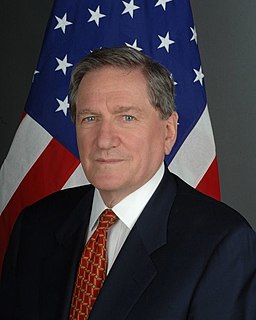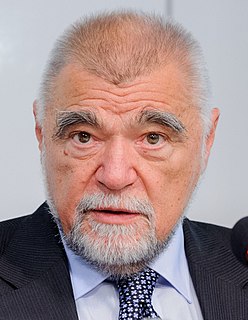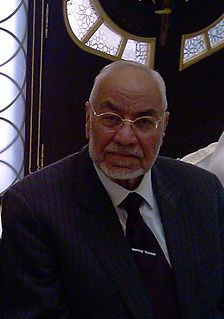A Quote by Samuel P. Huntington
I think we can expect leaders of Muslim societies to cooperate with each other on many issues just as Western societies cooperate with each other.
Related Quotes
Countries will cooperate with each other, and are more likely to cooperate with each other when they share a common culture, as is most dramatically illustrated in the European Union. But other groupings of countries are emerging in East Asia and in South America. Basically, as I said, these politics will be oriented around, in large part, cultural similarities and cultural antagonism.
Members of Congress on both sides of the aisle, are motivated by all kinds of issues. They're sincerely interested in the economy, in terrorism, in social issues. But the one overriding thing they're interested in is getting reelected. And if they think that it's harder for them to get reelected by cooperating with each other, then they won't cooperate.
The colonial experience all Muslim countrieswent through may be a factor in the fight against Western domination, British, French or whatever. They were until recently largely rural societies with land owning governing elites in most of them. I think they are certainly moving toward urbanization and much more pluralistic political systems. In almost every Muslim country, that is occurring. Obviously they are increasing their involvement with non-Muslim societies. One peak aspect of this, of course, is the migration of Muslims into Europe.
When jurors are forced to spend day and night with each other, apart from their families and friends, they become a tribe unto themselves. Because they only have each other for company, and because most people prefer harmony to discord, there's a natural desire to cooperate, to compromise in order to reach agreement.
There never is any such thing as one truth to be found in dramatic art. There are many. These truths challenge each other, recoil from each other, reflect each other, ignore each other, tease each other, are blind to each other. Sometimes you feel you have the truth of a moment in your hand, then it slips through your fingers and is lost.
I think there's no question that, even though we may not have the evidence as Richard (Perle) says, that there have been such contacts (between Iraq and al Qaeda). It' s normal. It's natural. These are a lot of bad actors in the same region together. They are going to bump into each other. They are going to exchange information. They're going to feel each other out and see whether there are opportunities to cooperate. That's inevitable in this region, and I think it's clear that regardless of whether or not such evidence is produced of these connections that Saddam Hussein is a threat.
On the future of the U.S., or of Western civilization in general, I tend to be quite pessimistic. I would say that today I see most of the symptoms of societies on the brink of collapse, not just in the U.S., but in the tightly interconnected societies of Western civilization - now essentially world civilization.
We need each other to do things that we can't do for ourselves. If we are intimately connected with each other, we just give things to each other; if we don't know each other we find another way to handle it. If you think about it, each according to his or her abilities and each according to his or her needs is sort of the same thing as supply and demand.



































